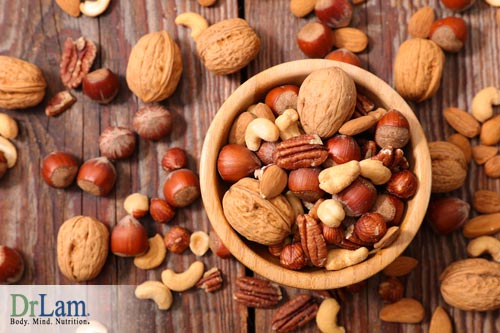 A new study from Loma Linda University in California has found that as little as an ounce of tree nuts per week was associated with a 7% drop in Metabolic Syndrome (MS). Furthermore, once per week consumption of tree nuts and total nuts was significantly associated with 3% and 2% reduction of MS, respectively. Peanut consumption was found to have no significant association with MS.
A new study from Loma Linda University in California has found that as little as an ounce of tree nuts per week was associated with a 7% drop in Metabolic Syndrome (MS). Furthermore, once per week consumption of tree nuts and total nuts was significantly associated with 3% and 2% reduction of MS, respectively. Peanut consumption was found to have no significant association with MS.
Metabolic Syndrome (MS) is the name for a group of risk factors that significantly raise a person’s risk for heart disease and other health problems, such as diabetes and stroke. A person must have at least 3 of 5 following metabolic risk factors to be diagnosed with MS: high blood pressure, a high triglyceride level, a low HDL cholesterol level, large waistline, and high fasting blood sugar.
The study analyzed the nut consumption of 803 relatively healthy Seventh-day Adventist adults and it found that tree nut consumption had a strong inverse association with obesity. In particular, the study participants who ate the most nuts averaged BMIs of about 27 while those who ate the least - less than 5 grams of tree nuts per day - averaged BMIs of 29 to 30.
However, all nuts are not created equal. The greatest anti-obesity effect was found in diets high in tree nuts—like almonds,walnuts, pistachios and cashews. Peanuts, a ground nut or legumes, had a visible but less noticeable impact. Tree nuts include almonds,walnuts, cashews, hazelnuts, Brazil nuts, pecans, macadamias, pine nuts, andpistachios.

